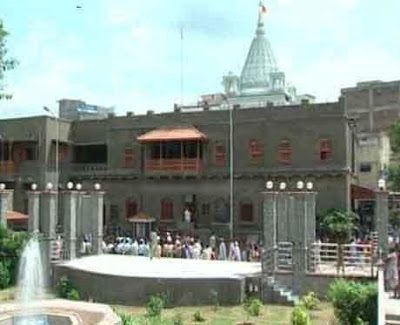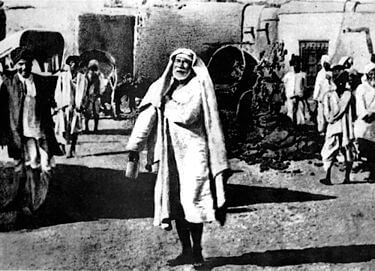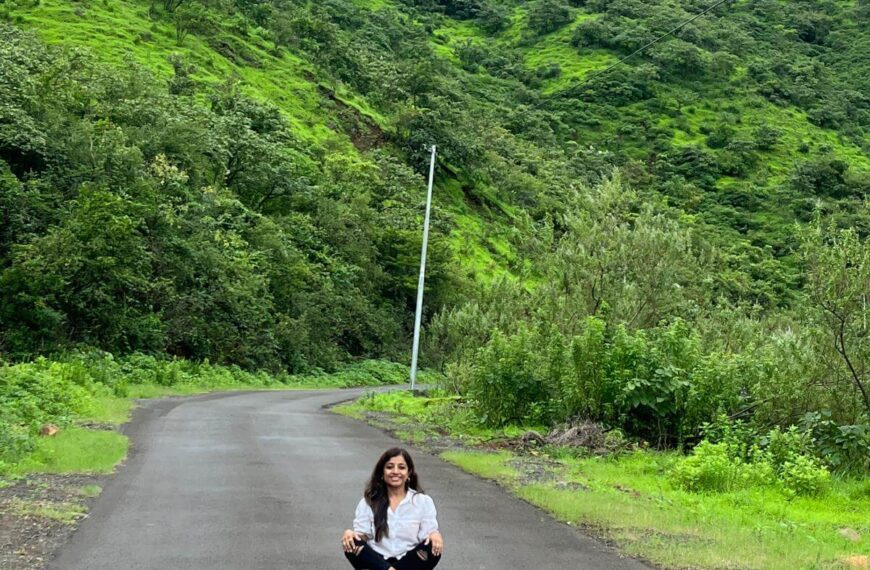Commercialisation has edged out the beautiful ambiance of the 1980s and 90s. The simple village, Shirdi, has lost its charm and innocence. Tribhawan tells us about the sad loss, exclusively in Different Truths.

My family and I, paid a visit to Shirdi on 18th May 2017 to have darshan of Sai Baba. We all had an earnest desire to visit the place to pay our obeisance to Sai Baba and to pray for everyone’s wellbeing. Having first visited Shirdi, in 1982, and later, off and on, I could not help but note the contrast between the first few visits and the latest visit.
Back in the 80s, I vividly remember my first visit to Shirdi village (with my family consisting of my wife, a young son and a daughter), which I always feel, was much more fruitful and soulful than my visits in 21st century. Even later, visits till the late 90s made us feel One with Sai Baba.
I recollect our first ever visit at Shirdi, we had reached Shirdi by taxi from Manmad Railway Station. I found Shirdi just like another village with simplicity writ large everywhere. There were a few inn-type small houses but we preferred to stay in Sai Sansthan, which had only 50 room building near the temple itself. We heard that Manoj Kumar, the actor, was building a hotel there. It had become a talking point for the villagers as his film on Sai Baba made people of India aware of his smadhi in Shirdi. Shops were mostly around the temple. People were generous and gracefully acknowledged our presence helping and guiding us to the temple/samadi of Sai Baba. Entry was straight from the small hall gate near sanctum sanctorum. We had full darshan, squatted, prostrated, prayed, offered cheddar, took photographs freely, talked to the pujaries (priests) and attended all four arties, the first one beginning at 5 am. We mixed with villagers to bathe Baba contributing our share of the milk in the bucket. No hassles. No crowding. Every religious ritual was finalised with military-like precision.
Witnessing of the procession was itself a soulful experience.

Fortunately, we had visited on Thursday. The visit culminated with watching Baba ki Palki being carried from Dwarkamai to Chwadi and back with all the dance and drum beatings. Witnessing of the procession was itself a soulful experience. We considered ourselves fortunate to be present. This was as far back as in 1982. Since then we had made it a point to visit Shirdi at least once in two years.
A lot of changes have been taking place in and around Shirdi since the 90s. Temple now looks like a fortress. The waiting period for common man extends from an hour to four hours depending on the day and time of visit. During festive seasons it may take up to eight hours. Free entry is being regulated strictly for common devotee whereas VVIP/VIP/anyone with a little connection with security/administrators etc. has easy access through short-cuts to have darshan of Baba, through gates leading straight to sanctum-sanctorum.
Government servants having valid ID’s and senior citizens also can have darshan skipping long rows through a bit longer short-cut (Shani Gate). Online passes are generated paying for your visit but still one has to go through Shani gate instead of VVIP gate.
A shopping/ food shops have now come up surrounding the temple.
Since my first visit, this simple village has been getting transformed into a township gradually. With the all-round development due to the influx of visitors and devotees, the establishments like 3 or 4-star hotels/branded eateries/shops/inns have mushroomed all over. Roads have been widened. A shopping/ food shops have now come up surrounding the temple. The surroundings of the temple itself have undergone such a change that I feel lost in the commercialisation of the place. Long serpentine queues and waiting for darshan have now become norms of religious places everywhere and Shirdi is no exception as it is becoming number two in the collection of donations in India after Triputi.
However, we hardly had reached near the Samadhi, which was barricaded in such a way that hands could not reach to touch it. Pandits/Pujarees were receiving offering like robots, taking out garlands and returning offered Prasad. No emotions were expressed. Some shouts of Sai Baba ki Jai made people respond with vigour. We prayed for everyone’s wellbeing amidst the shouts of ‘chala…chala’, which forced us to move. Hardly one minute to prayer. and we were shoved out. I really prayed Baba to bring back the times of 80s/90s back.
One thing is clear in my mind that the Shirdi village has lost its innocence…
One thing is clear in my mind that the Shirdi village has lost its innocence somewhere on the way. Maybe it is the price that a village has to pay for development and reaping the commercial benefits while exploiting religious sentiments of crores of devotees. May Sai Baba bless us all!
Photos from Wikipedia and Travel India
#ShirdiSaiBaba #CommercialisationOfPilgrimage #SaiBabaBlessings #Prayers #ChangeInWorship #LostInnocence #CommercialisationOfBhakti #SaiBabaDarshan #DifferentTruths





 By
By

